Youth voices on the rise
![In recent years, the topic of lowering the national voting age has sparked debates across the United States. Young people have been at the forefront of the discussion, sharing their unique perspectives and opinions on voting ages. “[I want to vote because] I should be able to make decisions about myself, about my education, and about my rights,” sophomore Yein Ahn said.](https://pwestpathfinder.com/wp-content/uploads/2023/10/Orange-and-Dark-Blue-Debate-Team-Poster-2-e1697042961161.png)
Turning sixteen can be one of the biggest milestones for a teen. By their 16th birthday, a teen can drive a car, pay taxes, work without restrictions, become emancipated and drop out of high school. If 16-year-olds can make such life-changing decisions, shouldn’t they also have the right to vote?
“[Teens] should be able to vote because they can think for themselves. [They] might have an opinion that other people might not have. [Voting lets] your opinions out and [lets you] say what you want to say,” senior Insang Lee said.
Teens should have a say in government and politicians whose ideas affect them directly. For example, when the Supreme Court eliminated affirmative action in colleges, teens across the country were affected. Because they are about to enter college, a crucial stage in their lives, teens should have been able to make an informed decision about their future, but the national voting age, 18, prevents them from doing so.
“[16-year-olds] should be able to vote because they’re becoming adults, so they have their own opinions. Kids these days are mature enough to know what they want. Kids these days spend a lot of their time on social media and they know what’s going on around the world,” freshman Om Uppara said.
Not only do teens have their own ideas about potential changes to society, but they have also constantly demonstrated interest in implementing them. In the past, teens have organized and participated in protests relating to policy change. Greta Thunberg and Marley Dias are famous teenage changemakers who have been active on issues like climate change and increasing diversity in literacy.
“I wish I could vote. There are issues that kids are dealing with and understand better than adults who aren’t going through the same things. We are affected by laws, [such as the removal of] affirmative action. If we’re 18, we would be in college, so we can’t do anything about it then. It would be helpful [to vote] earlier about things that are going to impact us later,” senior Amy Rein said.
While some may argue that teens aren’t mature enough to vote because of their physical and emotional experiences, there are many teens who are passionate and educated about current issues. There is a common misconception that teens don’t have a fully developed brain, so they shouldn’t be able to vote. However, their cold cognition — the ability to act in pressure-less situations — is as developed as an adult’s cold cognition.
In addition, students are often more impacted by certain national and local issues compared to their adult counterparts. In 2022, there were 51 shootings in high schools, establishing an implied need for teens to have a say in gun laws. School shootings can impact a student’s education as well as cause trauma for the rest of their lives. If students had a say in gun laws and politicians on various platforms, then it is reasonable to assume that politicians would make students a priority to keep their votes.
“As a high schooler, gun laws [are important]. It’s more applicable to me as a high schooler rather than if I was an 18-year-old voting because [while] it’s still a big issue, I would no longer be in school having to think about that,” junior Sadie Burgess said.
Adults may have more experiences than teens, but there are situations that this generation faces that make them better equipped to make decisions about their lives.
“[I would vote on] education and [topics] that involve children or students. Sometimes parents don’t understand everything that kids go through. They can’t [always] make the [right] decisions,” sophomore Yein Ahn said. “[Teens] are members of society and should have a choice in decisions about us.”
It is vital that 16-year-olds are an active part of the government. Teens will not only have their voices heard, but they will increase the national voter turnout, making our country a powerful republic. It is vital to increase voter turnout because it ensures that everyone’s voices are heard and allows the ability to select the correct presidential candidate based on our nation’s wants.
Even though the United States Constitution acknowledges that only people aged 18 or higher can vote, times have changed as new problems have arisen, including issues of education, guns and drugs. All of these issues heavily affect teens. Thus, naturally, 16-year-olds should be given the right to vote. High school students have drafted bills and had them signed into law in the past, but they weren’t allowed to vote on them. Now, there are local efforts to give teens the right to vote as well as national efforts. Vote16USA — a movement that has galvanized youth and adult-led organizations around the country to promote young voters — advocates for 16-year-olds to have their voice heard on a national stage. Young people are clearly demonstrating an interest in electing their representatives and voting on legislation, so they can get involved with the campaign or find other ways to get involved to fight for their rights.
It’s important to focus on topics that young people are passionate about, for they are the next generation of adults and voters. Clearly, high schoolers have demonstrated that they are passionate and resilient about voting, so it is vital that the U.S. government considers lowering the national voting age to 16 years.
While many 16 and 17-year-olds naturally want the right to vote for issues they care about, the average American voter overwhelmingly disagrees. In 2019, a poll found that 84% of registered voters were against giving 16-year-olds the right to vote. Now, it seems students feel the same way.
“[The voting age] is pretty good at 18 because all adults should vote,” senior Michael Emerson said. “Usually 18-year-olds have some government class by the time they turn 18. That’s the age of adulthood and [when] you’re out of school.”
Although teenagers are capable of many responsibilities, they are still ultimately dependent on their parents. Teenagers are not able to sign contracts for themselves or consume alcohol. Most 16-year-olds do not own their own homes, nor do they do their own taxes. Thus, for adult voters who are directly impacted by matters like taxation, it would be unfair to have election results skewed by a teenage demographic that does not experience the issues at hand. Why should teenagers be allowed to vote on issues that they do not have the life experience to evaluate?
Although there are some issues teenagers may want to vote on, their political beliefs are often heavily influenced by those of their parents, especially in politically active households. Studies have shown that children raised in highly political households are the likely to change their beliefs after leaving their homes and joining new social networks or consuming new media. While political socialization and influences will always exist, in many households, giving teenagers suffrage would be equivalent to giving their parents additional votes.
”I don’t even think 18-year-olds should be able to vote. They should move [the voting age] back to 21 or 25 because then that’s when you’re brain’s really developed. It’s crazy because [at] 18, you’re still in high school [and] you don’t have your high school diploma yet,” junior Mia Lauer said.
Although lowering the voting age may seem appealing to teenage activists, it is a widely unpopular proposition. And, even if given the opportunity, most teenagers would probably not exercise suffrage. In the United States, turnout for voters ages 18-29 has historically been lower than other age groups, which can be partly attributed to their lack of education on the candidates, inexperience with the voting process and preference for more active forms of political engagement, such as protesting or signing petitions.
Perhaps our efforts would be better spent decreasing barriers among those who can already vote. Nationwide, states are disenfranchising voters through strict voter ID laws and cuts to voting access. Fixating on an unpopular idea like teenage suffrage takes attention away from the issue we should be focusing on: making sure mature adults with experience beyond high school have a voice in our country.
-
![Junior Fiona Dye lifts weights in Strength and Conditioning. Now that the Trump administration has instituted policies such as AI deregulation, tariffs and university funding freezes, women may have to work twice as hard to get half as far. "[Trump] wants America to be more divided; he wants to inspire hatred in people,” feminist club member and junior Clara Lazarini said.](https://pwestpathfinder.com/wp-content/uploads/2025/05/Flag.png) OpinionsIs the future female?
OpinionsIs the future female? -
![As the Trump administration cracks down on immigration, it scapegoats many immigrants for the United States’ plights, precipitating a possible genocide. Sophomore Annabella Whiteley moved from the United Kingdom when she was eight. “It’s pretty scary because I’m on a visa. When my visa expires next year, I’m not sure what’s going to happen, especially with [immigration] policies up in the air, so it is a concern for my family,” Whiteley said.](https://pwestpathfinder.com/wp-content/uploads/2025/05/DSC_0077-7copy.jpg) OpinionsE pluribus unum?
OpinionsE pluribus unum? -
![Shifting global trade, President Donald Trump’s tariffs are raising concerns about economic stability for the U.S. and other countries alike. “[The tariffs are] going to pose a distinct challenge to the U.S. economy and a challenge to the global economy on the whole because it's going to greatly upset who trades with who and where resources and products are going to come from,” social studies teacher Melvin Trotier said.](https://pwestpathfinder.com/wp-content/uploads/2025/05/MDB_3456-1200x800.jpg) OpinionsThe cost of ‘America First’
OpinionsThe cost of ‘America First’ -
 OpinionsA young mind under pressure: The link between adolescent mental health and school shootings
OpinionsA young mind under pressure: The link between adolescent mental health and school shootings -
 OpinionsStarbucks: A brewing crisis
OpinionsStarbucks: A brewing crisis -
 OpinionsA digital age: Music streaming platforms are killing artists
OpinionsA digital age: Music streaming platforms are killing artists -
![Some of the most deadly instances of gun violence have occurred in schools, communities and other ‘safe spaces’ for students. These uncontrolled settings give way to the need for gun regulation, including background and mental health checks. “Gun control comes about with more laws, but there are a lot of guns out there that people could obtain illegally. What is a solution that would get the illegal guns off the street? We have yet to find [one],” social studies teacher Nancy Sachtlaben said.](https://pwestpathfinder.com/wp-content/uploads/2025/01/DSC_5122-1200x800.jpg) OpinionsLives on the line: Gun violence’s impact on America
OpinionsLives on the line: Gun violence’s impact on America -
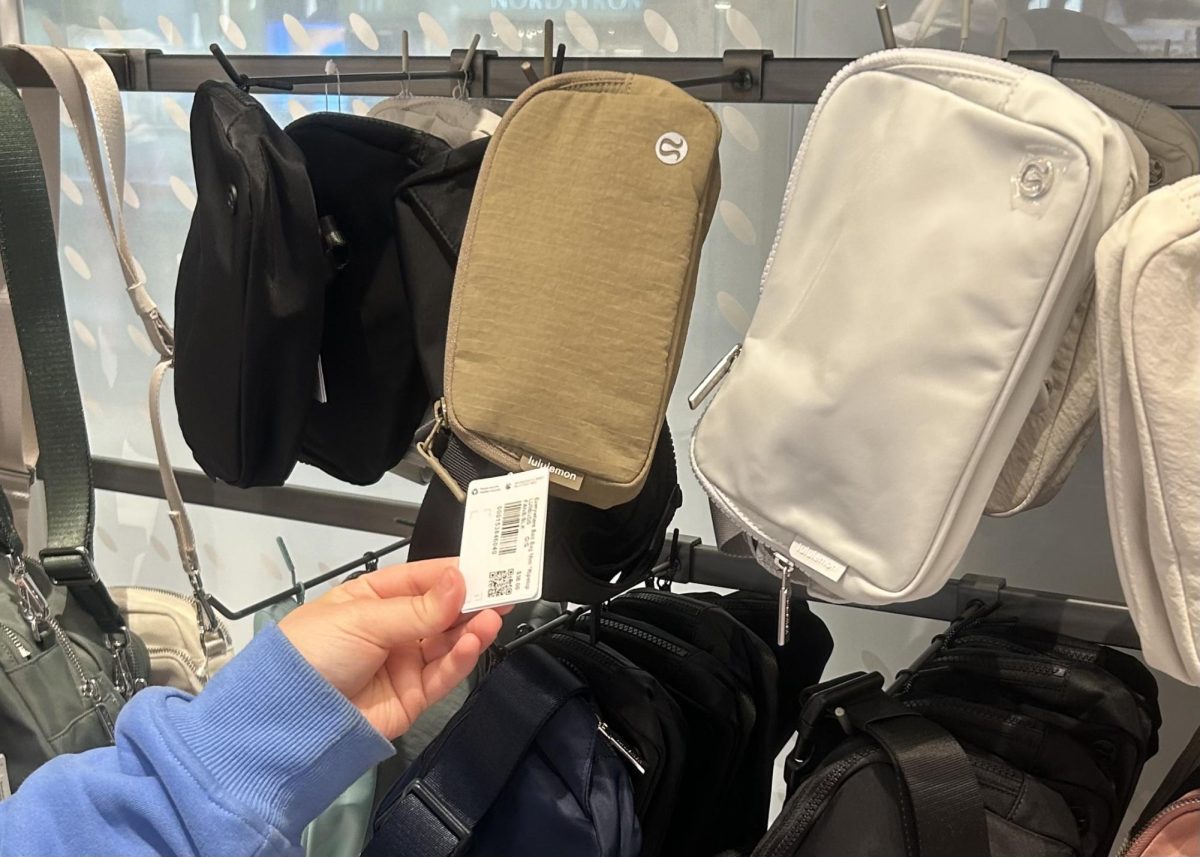 OpinionsThe Lululemon effect
OpinionsThe Lululemon effect -
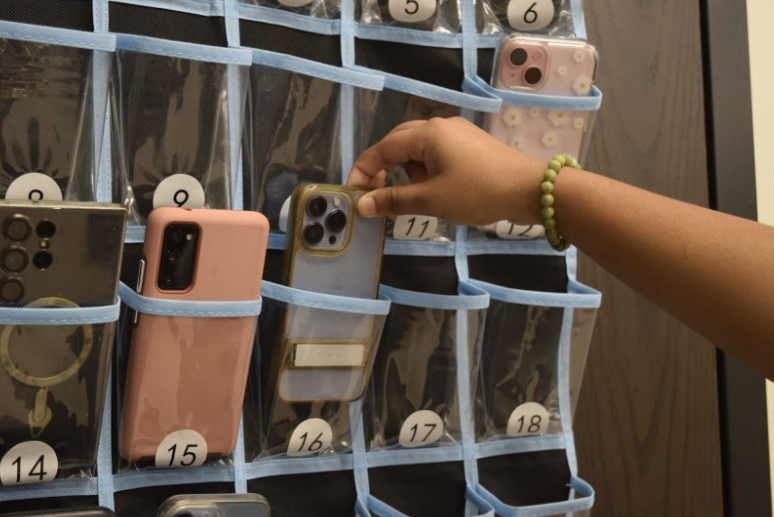 OpinionsMore harm than help
OpinionsMore harm than help -
![Making up a large portion of the film industry, many popular movie remakes and sequels have been released recently. Similar to film remakes, theater teacher Amie Gosset often uses play adaptations of famous movies for theater productions. “It’s challenging because people have an idea of what the film is, whether it’s an iconic film or one they really liked. [Consumers] come in with a preconceived notion of how the [film] should be. Then, [they] are either surprised because they like the new version or disappointed because it’s not what they’re used to.”](https://pwestpathfinder.com/wp-content/uploads/2024/12/DSC_0042-1200x801.jpg) OpinionsRewind and replay
OpinionsRewind and replay -
 ShowcaseConnecting for change: Making West High a better place
ShowcaseConnecting for change: Making West High a better place -
 ShowcaseCrowned: A look at your 2025 Prom King and Queen
ShowcaseCrowned: A look at your 2025 Prom King and Queen -
![Pitching the ball on Apr. 14, senior Henry Wild and his team play against Belleville East. Wild was named scholar athlete of the year by St. Louis Post-Dispatch after maintaining a high cumulative GPA and staying involved with athletics for all of high school. “It’s an amazing honor. I feel very blessed to have the opportunity to represent my school [and] what [it] stands for,” Wild said.](https://pwestpathfinder.com/wp-content/uploads/2025/05/unnamed-6-1200x714.jpg) ShowcaseDriven to excel
ShowcaseDriven to excel -
![Red, white and blue, the American flag holds the values of our democracy. The fight that we once endured has returned, as student journalists and senior correspondents across the country are losing their voices due to government control. “[Are] the White House and [the] government limiting free speech [and] freedom of the press? Yes [they are],” chief communications officer of the Parkway School District and former journalist Elisa Tomich said.](https://pwestpathfinder.com/wp-content/uploads/2025/03/Untitled-design-14.jpg) ShowcaseThe fight for the first: Protecting journalists across the country
ShowcaseThe fight for the first: Protecting journalists across the country -
![Freezing in their position, the Addams Family cast hits the “rigor mortis” pose after cast member and senior Jack Mullen, in character as Gomez Addams, calls out the stiff death move. For the past four months, the combined company of cast members, orchestra pit, crew and directors all worked to create the familial chemistry of the show. “I’m excited for [the audience] to see the numbers, the music, the scenes, but I also just love all the technical aspects of it. The whole spectacle, the costumes, makeup and the people that put in the work backstage in order to make the show successful on stage. I’m excited for people to see and appreciate that,” Mullen said.](https://pwestpathfinder.com/wp-content/uploads/2025/03/DSC0116-1200x800.jpg) ShowcaseRigor mortis!
ShowcaseRigor mortis! -
![A board in the Parkway West counseling department displays pennants of selective universities. With a wide range of students interested in attending, it’s important that these schools have clear priorities when deciding who to admit. “[Washington University] had the major that I wanted, psychology, philosophy, neuroscience. That's a holistic study of the brain, and [WashU is] the only college in the world that offers that. That's the main reason I wanted to go; I got into that program,” senior Dima Layth said.](https://pwestpathfinder.com/wp-content/uploads/2025/02/Flag-1.png) ShowcaseThrough the looking-glass
ShowcaseThrough the looking-glass -
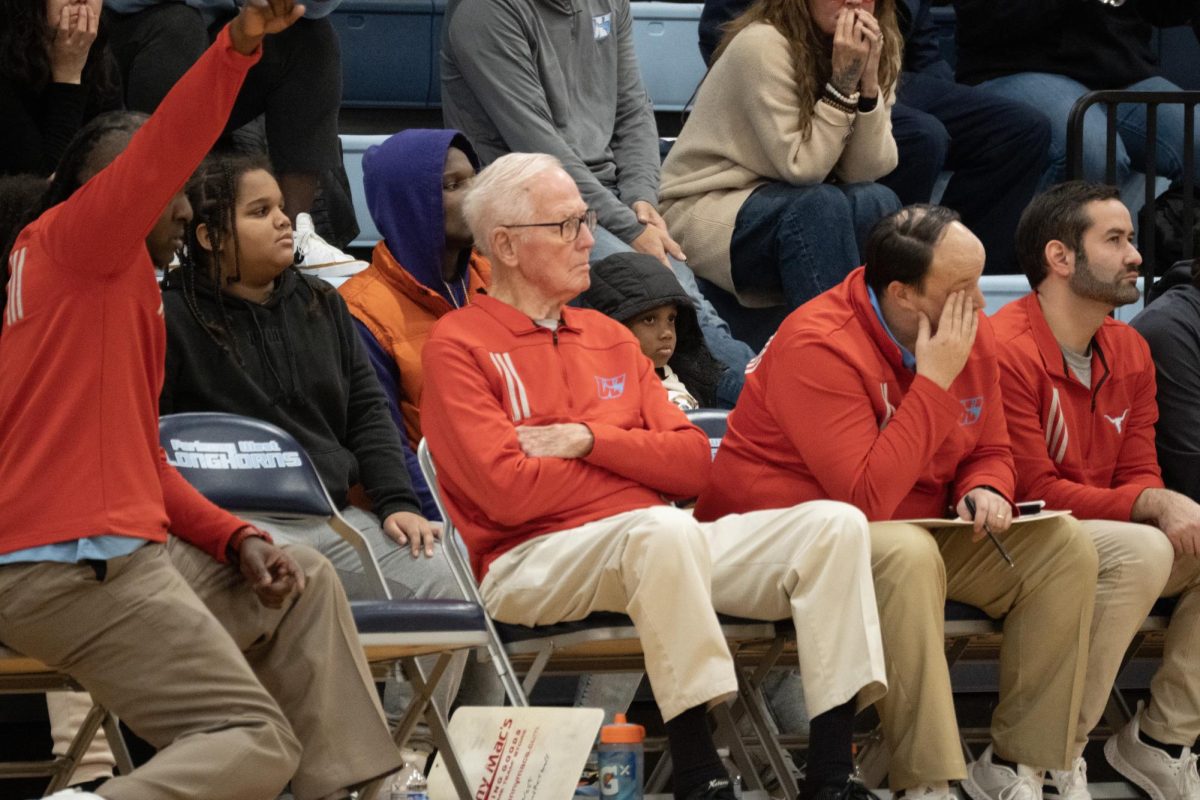 ShowcaseA legacy of leadership and excellence in sports
ShowcaseA legacy of leadership and excellence in sports -
![Within the U.S., the busiest shopping period of the year is Cyber Week, the time from Thanksgiving through Black Friday and Cyber Monday. This year, shoppers spent $13.3 billion on Cyber Monday, which is a 7.3% year-over-year increase from 2023. “When I was younger, I would always be out with my mom getting Christmas gifts or just shopping in general. Now, as she has gotten older, I've noticed [that almost] every day, I'll open the front door and there's three packages that my mom has ordered. Part of that is she just doesn't always have the time to go to a store for 30 minutes to an hour, but the other part is when she gets bored, she has easy access to [shopping],” junior Grace Garetson said.](https://pwestpathfinder.com/wp-content/uploads/2024/12/DSC_0249.JPG-1200x801.jpg) ShowcaseSeason of giving, season of getting
ShowcaseSeason of giving, season of getting -
![Complex global supply chains supply the goods for everyday luxuries, such as the coffee at West High’s Blue Brew. Low tariffs enabled much of the prosperity of modern history. “Higher tariffs lead to higher costs. A tariff is a tax on an imported good, and someone has to pay for that tax, and typically that [will] end up impacting consumers,” economics teacher Rachel Money said.](https://pwestpathfinder.com/wp-content/uploads/2024/12/Flag-1.png) ShowcaseSpread the wealth
ShowcaseSpread the wealth -
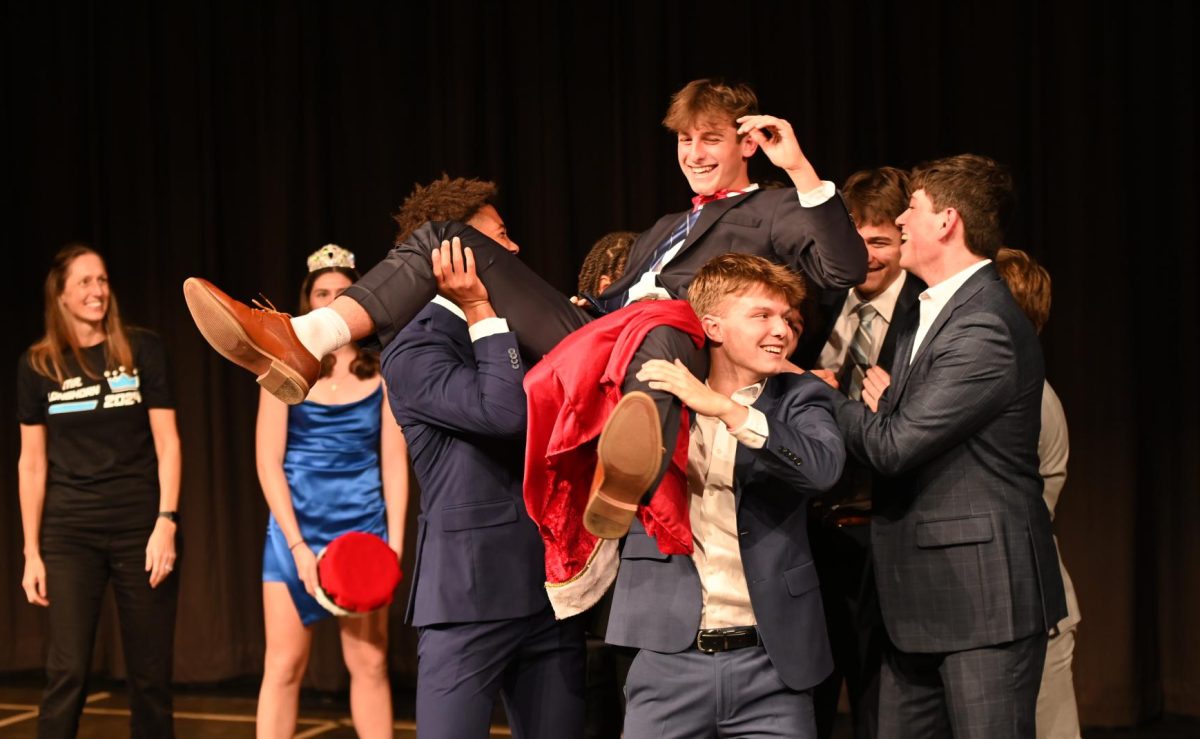 ShowcaseAnd the winner is…
ShowcaseAnd the winner is…
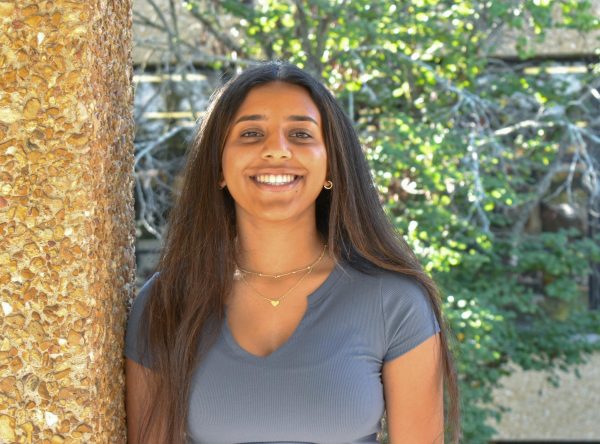




Inaya • Oct 20, 2023 at 9:16 am
This is so good!
Lauren Holcomb • Oct 18, 2023 at 11:46 am
this is so good you guys are both geniuses. ur writing puts leo tolstoy to shame. george orwell is SOBBING
Will Gonsior • Nov 2, 2023 at 12:08 pm
George Orwell was sobbing the moment he realized he wasn’t coming close to matching his mentor’s “Brave New World…”
… but this is a nail in the coffin for sure
Lauren Holcomb • Oct 18, 2023 at 11:44 am
ATTTEEEEEEEEEEE